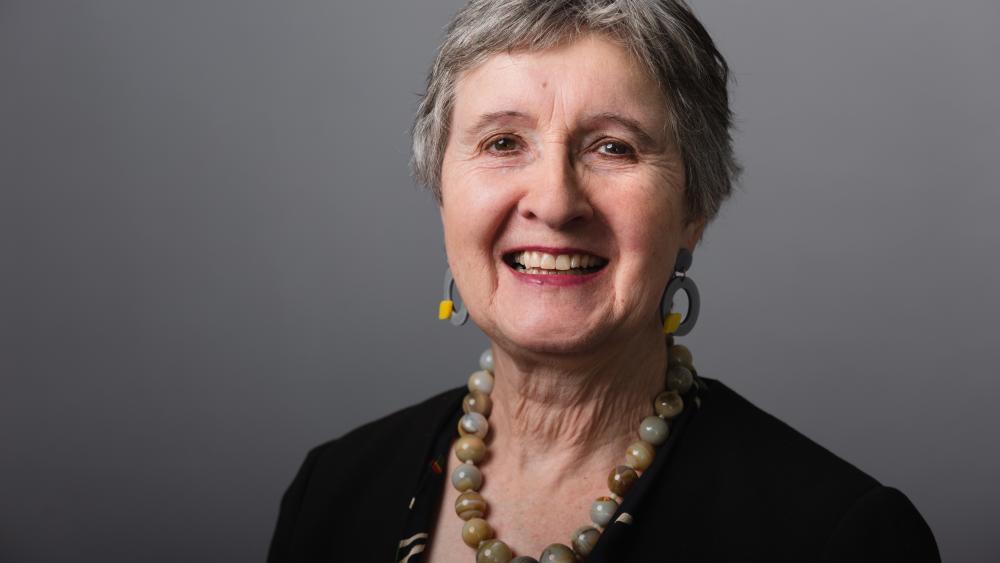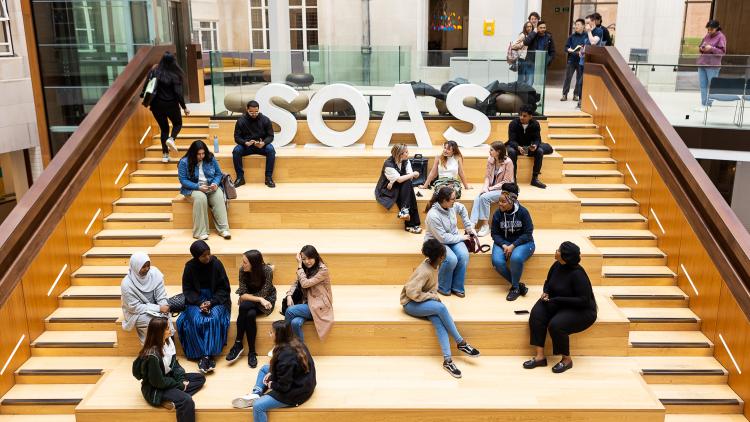Professor Alison Scott-Baumann

Key information

- Roles
- Professor of Society and Belief Project Lead
- Subject
- Law
- Building
- Russell Square: College Buildings
- Email address
- as150@soas.ac.uk
- Telephone number
- +44(0) 20 7898 4632
Biography
Alison Scott-Baumann is Professor of Society and Belief in the Centre of Islamic Studies in the Near and Middle East Department at SOAS and her work has two interrelated and also distinct research strands, social justice and philosophy.
Her research has recently been recognized and rewarded by world-class research grants from Leverhulme (2012-13), ESRC (2012-13) and AHRC (2015-18). With regard to social justice she is best known for her ongoing work on Islam in Britain that dates back to 1997. She has been consulted by government (2007 Siddiqui Report; 2008-10 Review of imam training) and has received HEA funding on several occasions.
In 2015 AHRC awarded Alison a major three year grant to research Re/presenting Islam on campus at SOAS, with an interdisciplinary academic team: Dr. Sariya Cheruvallil-Contractor (Coventry), Dr. Mathew Guest (Durham), Dr. Shuruq Naguib (Lancaster), Dr. Ashraf Hoque (postdoctoral researcher SOAS) and Mr. Kareem Darwish (administrator SOAS). This project will seek to redress the imbalance in current approaches towards Islam and towards the role of universities in a democratic state.
Alison applies philosophy to social justice issues, regarding Islam, higher education and feminist debates. She is also known internationally for her philosophical research and was awarded a Leverhulme Fellowship for original research on Ricoeur, Kant and Sartre (2012-13). She works extensively on Ricoeur, and is an invited member of the Conseil Scientifique of the Fonds Ricoeur in Paris, and board member ofthreeinternational Ricoeur groups. She publishes regularly on Ricoeur and speaks frequently at international conferences in Europe and USA.
She is a Visiting Researcher in the Politics, Philosophy and Religion Department at Lancaster University and a Visiting Researcher at VU Amsterdam University in the Centre for Islamic Theology.
Research interests
In our confusing world full of opinions that are not evidence based, I apply philosophy to social justice issues: philosophy both structures and nourishes my research and helps me to ask difficult questions, when faced, for example with current hegemonic discourses that pathologise Islam.
Such discourses also seek to use concerns about Islam to constrain the university sector. My work represents a clear paradigm shift in British Muslim relations with Higher Education by supporting collaborative partnerships between universities and Islamic institutions. This is extremely important at a time in British civil life when hate crimes and anti-religious feelings are increasing, especially against Muslims and against others who seem to use religion as their guide. There is currently little effective activity at British universities to support cosmopolitan citizenship.
My work started with a collaborative partnership in 1997 between the University of Gloucestershire and the Kashmir Education Foundation UK and their work in Pakistan. In collaboration with the then Teacher Training Agency, I also set up a partnership between Markfield Institute of Higher Education and the University of Gloucestershire, which endures to this day at masters and doctoral level and includes validation and quality assurance.
As recognition of the importance of my work I was invited to become a member of Dr. Siddiqui’s government review of Islam in Higher Education, 2007, and in 2008 Hazel Blears commissioned me personally to review imam training for the government (Communities and Local Government). For three years I served as a board member of the Islamic Studies Network (HEA) and I was a key figure in the subsequent establishment of British Association for Islamic Studies (BRAIS). I am invited regularly to lecture on the context for Islamic Studies (e.g. Leeds 28.1.12). I have secured two HEA research grants; one on creating a curriculum to meet the needs of British Muslim women at university and the other of Arabic language teaching. The acknowledged excellence of this work is demonstrated by the award in 2012 to a colleague and me of the aforementioned ESRC follow-on funding to disseminate research findings regarding collaborative partnerships (£76,000).
In 2015 I was awarded a major 3-year grant by AHRC to research Re/presenting Islam on campus (£700,000).
In philosophy I was awarded a Leverhulme Fellowship for original research on Ricoeur, Kant and Sartre (2012-13), and I write, lecture and publish extensively about Ricoeur and modern continental thought.
Murdoch is also a special interest, and I am currently researching her early work on Sartre, using unknown archival material in the Bodleian Oxford, St Anne’s Oxford and Newnham College Cambridge to show clearly how she became a continental philosopher and made good use of Sartre and other major European philosophers. I have written and lectured on Murdoch for the last decade.
Having hoped to effect change within philosophy by being a role model as a woman thinker, I now believe it is necessary to intervene directly in discussion that remains male dominated and therefore still does not encourage discussion between men and women about their shared human condition.
I have been successful for 15 years in attracting research funds, and have published the outcomes of each research project, either as a book, an article, a book chapter or a policy report.
PhD Supervision
| Name | Title |
|---|---|
| Syed Enam Ahammad | Undertaking Islamophobia will improve human rights for the Muslims in the UK |
| Sofia Tsourlaki |
Publications
Contact Alison
- Telephone




